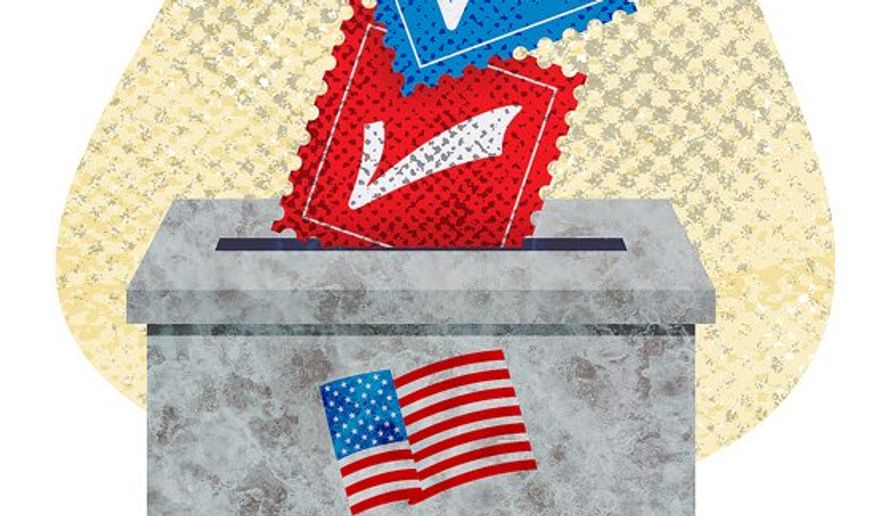
No one is trying to steal the election with mail-in voting. Stop saying they are
by Nate HochmanANALYSIS/OPINION:
Despite sweeping prognostications about conspiratorial plots to rig the election by partisans on both sides of the aisle, the largest threat to the integrity of our electoral politics isn’t a surreptitious attempt at foul play by either Republicans or Democrats — it’s widespread, often unfounded suspicions about those attempts, echoed and amplified by party functionaries and sympathetic media in both political coalitions.
There are legitimate reasons to worry about the upcoming election, of course: An ongoing global pandemic, explosive urban unrest and our increasingly bitter polarization all present new and unique challenges to the health of American constitutional democracy. But amid all of this chaos, left and right alike have developed a growing attachment to dubious narratives about their political adversaries’ nefarious plans to cheat at the ballot box on Nov. 3.
These conspiracy theories are profoundly destructive to our ability to trust one another — a foundational prerequisite for a pluralistic liberal democracy — but even more fundamentally, they’re simply wrong. To the best of our available knowledge, neither side is engaged in a concerted effort to steal the election. Full stop.
On the right, a widespread skepticism about Democratic attempts to take advantage of mail-in voting — momentarily expanded to mitigate the formation of lines and crowds on Election Day, which risk the potential spread of coronavirus — has been egged on by the president and many of his surrogates.
President Trump began sounding the alarm on vote-by-mail back in May, tweeting: “There is NO WAY (ZERO!) that Mail-In Ballots will be anything less than substantially fraudulent. Mail boxes will be robbed, ballots will be forged & even illegally printed out & fraudulently signed.” Later, he even suggested delaying the election “until people can properly, securely and safely vote.” His supporters have clearly begun to take notice: According to recent polling, more than half of Republican voters now say they are “very concerned” about tampering with mail-in ballots, compared with less than a third of Democrats.
But there’s little reason to think that the mail-in voting process is as rife with insecurities as some Republicans now claim that it is, and even less reason to believe that there is a concerted Democratic scheme to take advantage of the system. The practice has been in place in many states for decades, and analyses show no pattern of fraud — and no discernible increased benefit to one party over the other.
The real concerns to be raised about widespread vote-by-mail lie in the fact that, in the likely event that the preponderance of mail-in ballots slows the counting of votes, the results of the presidential election could take multiple days or even weeks to decide. Such a period of electoral limbo is far from ideal, and requires steady, measured communication from our political leadership. The president’s preemptive conspiratorializing has exactly the opposite effect.
On the left, widespread hysteria about the Trump administration’s schemes to interfere with mail-in ballots through the dismantling of the Post Office has driven an unending stream of articles, think-pieces, television segments and press releases. Reading The New York Times or watching CNN, one could be forgiven for thinking that the administration is conspiring to shut down the USPS altogether, effectively barring millions of Americans from access to voting.
But this is similarly baseless. The recent reforms to the postal service are due to its approaching insolvency, resulting from decades of financial mismanagement and decline that have only been exacerbated further by the coronavirus. Barack Obama, among others, called for major cuts to the U.s. Postal Service throughout his presidency, using the same fiscal reasoning as Louis DeJoy, the much-maligned current postmaster general. Pragmatic cost-cutting to ensure the agency’s long-term viability is a necessary step to protect the integrity of mail-in voting, not to threaten it.
In the same way that there are legitimate concerns to be voiced about expanded vote-by-mail, there are principled reasons to challenge the current postal service reforms. But the idea that Mr. Trump and Mr. DeJoy are behind an organized conspiracy to intentionally interfere with the election by tampering with the mail lacks evidence — and much of the news media has been forced to admit as much, despite an enormous amount of speculative coverage to the contrary: “It is false to say mail is intentionally being slowed, despite reports that a new USPS system might inherently cause delays,” granted a recent USA Today fact check.
In the midst of these back-and-forths, partisans on both sides persistently accuse one another of promoting baseless conspiracy theories to delegitimize our elections. In one sense, they’re both right. But they’re both also contributing to the problem — and Americans, regardless of party affiliation, should exercise a healthy skepticism toward their claims of an insidious plot to overthrow our democracy.
The unfortunate fact of the matter is that neither side actually knows what they’re doing. Incompetence, not malice, explains most of the defects in our contemporary politics.
• Nate Hochman (@njhochman) is a Colorado-based writer and Young Voices associate contributor.